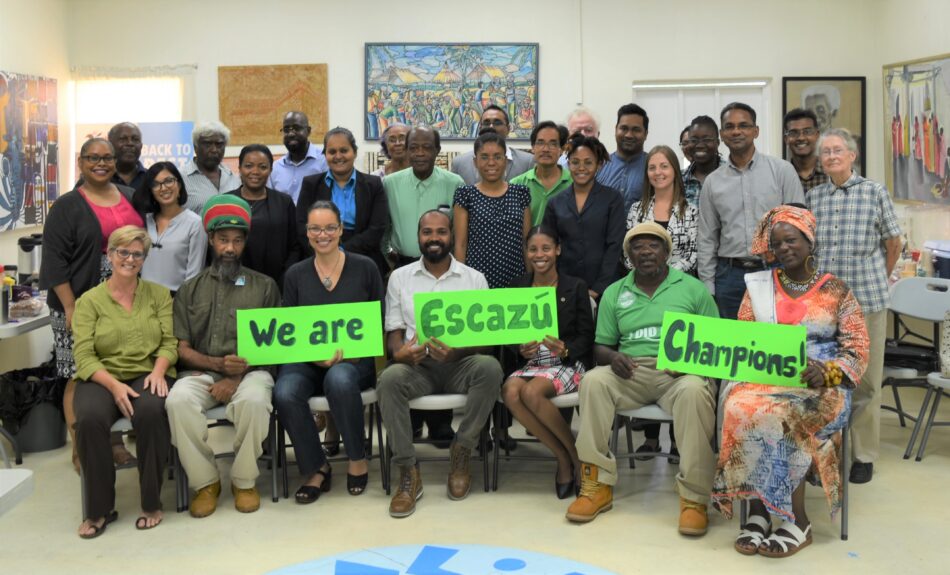Trinbagonians supported to pursue their right to a healthy environment

Port of Spain, March 13, 2024 – Civil society in Trinidad and Tobago is taking action to pursue the right to a healthy environment: including the right to clean air, safe and sufficient water, a non-toxic environment, healthy and sustainable food, healthy ecosystems and biodiversity, and a safe climate. This focus will be complemented with initiatives on the rights to access information, public participation and access to justice.
This work will be conducted under EnviroRightsTT, a new 2.5-year project being led by the Caribbean Natural Resources Institute (CANARI), in collaboration with Environment Tobago and EquiGov, and international partners, the Parliamentarians for Global Action and the Environmental Law Association Worldwide.
The United Nations General Assembly formally recognised the human right to a healthy environment in July 2022. Although the T&T Constitution does not explicitly recognise the right to a healthy environment, there is a strong institutional framework of laws and policies which should support access to information, public participation and justice in environmental matters. Unfortunately, these are not widely understood, or being effectively utilised.
In terms of access to information, the Freedom of Information Act became law 23 years ago, however there is still a need to improve transparency, openness, and communication between the citizens and public institutions. The lack of accessibility to information hinders the ability of civil society organisations (CSOs), journalists and citizens to engage in informed policy dialogue, resulting in reduced transparency and accountability in decisions affecting the environment.
While public participation is enshrined in environmental policies in T&T, the practice varies. Although civil society is involved in several multi-stakeholder advisory committees and the public consulted in the development of policies and plans to some extent, these mechanisms do not provide effective voice and opportunity for marginalised and vulnerable groups to engage in decision-making. Engagement of stakeholders is largely limited to reacting to proposals developed by Government. Further, co-management and collaborative arrangements are not utilised, therefore civil society is not fully recognised as a true development partner with a meaningful role in environmental governance, particularly in shaping national economic development.
Access to justice is also a challenge. The Environmental Commission was established under the Environmental Management Act 2000 but there have been only six cases of Direct Party Action brought, with only three brought by a CSO. The Commission is severely underutilised; however, it can provide an important pathway for redress on behalf of vulnerable communities and groups who face injustices due to the environmental impacts of development and climate change.
Further, despite having a strong institutional framework in place, the T&T Government has not yet joined as a Party to the Escazú Agreement on Access to Information, Public Participation and Justice in Environmental Matters in Latin America and the Caribbean, which would allow for knowledge sharing, capacity building and cooperation. In 2019, a national civil society coalition called on the Government to sign and ratify the treaty. In response to an open letter to the Prime Minister on September 6, 2019, the Ministry of Planning and Development indicated that this matter was under active consideration by the Cabinet.
There has since been no update.
Facing these challenges, the EnviroRightsTT project will enhance capacity of civil society in T&T to advocate for and support vulnerable groups to access environmental information, participate in decision-making processes and seek justice to protect the right to a healthy environment.
EnviroRightsTT is being supported by a TT$2.2M (EUR300,000) grant, funded by the European Union.
For more information on the EnviroRightsTT project, see: https://canari.org/civil-society-governance/envirorightstt/




